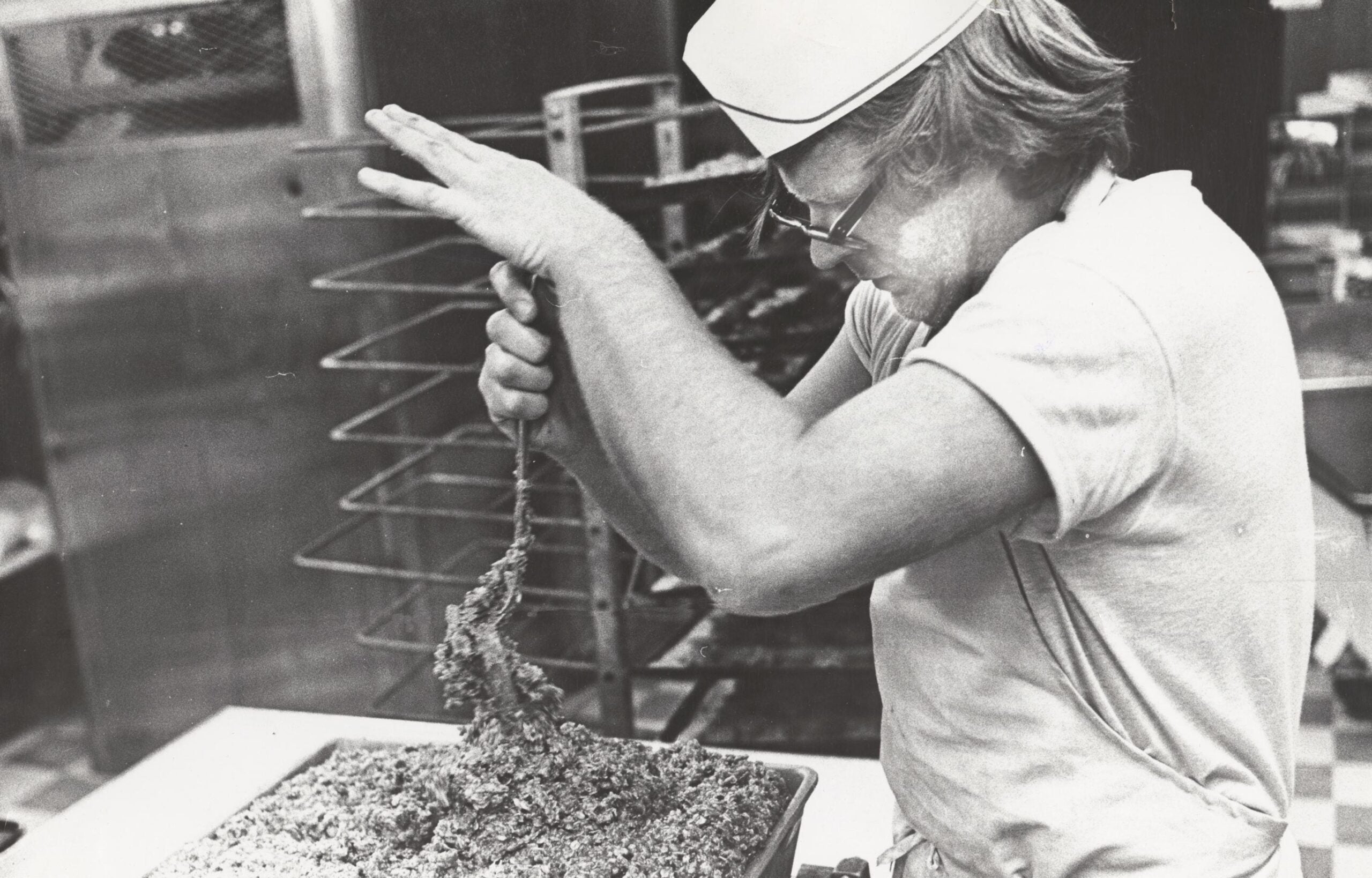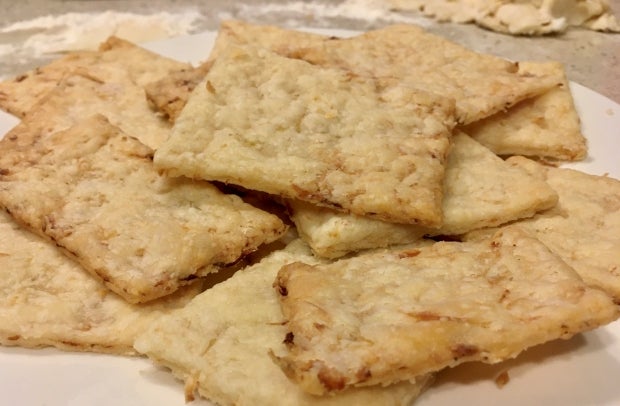The Guerrilla cookie was popular in the Madison co-op scene from the late 1960s to around the 1980s.
That all changed when Ted Odell, the cookie’s baker, decided to abandon baking and live in the woods.
Since the cookies’ disappearance, bakers of all levels have tried to re-create the recipe. Odell had not shared the recipe with anyone and when he died in 2021, the recipe went with him to the grave.
News with a little more humanity
WPR’s “Wisconsin Today” newsletter keeps you connected to the state you love without feeling overwhelmed. No paywall. No agenda. No corporate filter.
Dave Denison spent some time with Odell in Madison. He’s a writer at The Baffler. Denison recently chatted with Alex Crowe of WPR’s “Morning Edition” about the mysterious baker’s secret.
This interview has been edited for clarity.
Alex Crowe: I know there are a lot of listeners who may hear “guerrilla cookie” and that’s going to grab a certain part of their memory from Madison. For those of us, like myself, who weren’t around at the time, can you describe what these cookies looked and tasted like?
Dave Denison: It was a variation of what you would recognize as an oatmeal raisin cookie, but it was meant to be … it was described on the label as a whole meal cookie. And so, besides rolled oats and raisins, it had a lot of other ingredients like wheat germ and nuts, and probably a couple of different kinds of flour, mostly sweetened with honey and, I think, a little bit of molasses.
I remember that the label, which was handwritten by the baker, had the words to chew slowly, but we don’t have the full list of ingredients. So we’re all guessing.
I think that the interest in the guerrilla cookie itself has a lot to do with being partly connected to those times in Madison, Wisconsin in the ’60s and ’70s. But in some ways, you look for ways to bring back that lost time. And in this case, maybe with a lost recipe.
AC: Can you go a little bit into where the name “guerrilla cookie” actually came from and those ties to the counterculture that really thrived in Madison?
DD: That wasn’t Ted’s idea to call this whole meal cookie, a guerrilla cookie. He developed it in the late ’60s. By 1969, he got an agreement with the Mifflin Street Co-op in Madison to carry it on their shelves.
He started delivering them and someone — if you remember what Madison was like in the 1960s, it’s not hard to believe — someone at the Mifflin street Co-Op put a sign above the cookies, calling them guerrilla cookies — guerrilla in terms of warriors against the American empire. And Ted was a fairly pacifistic person. So he didn’t object to that name, and the name stuck.
AC: Ted was someone who was very interesting to read about. What was it like working with Ted one on one, and what was that baking process like?
DD: I had a brief period where I was his baker’s assistant. He was very interested in education and history and the environment. We would be working in the bakery with Wisconsin Public Radio on, and he every day would listen to “Chapter A Day” as part of his continuing education.
When the cookie was well known and popular, he circulated among a lot of the co-op people in and around Madison. He wanted support in turning his bakery into something grander and an educational center where he talked about educating children about nutrition. He wanted it to be a part of some sort of nutritional center that could do a greater good for the world than just producing a product.
The proposal was met with no enthusiasm.
By 2007, he was living out in the woods in a rustic cabin. Ted was a real nonconformist.
Part of his stubbornness was that he became aware in the 2000s that there was a lot of interest in bringing back the cookie and trying to find the recipe, and why won’t he share with us.
He stubbornly refused, because he felt like, ‘Why do I want to put this out into the world so someone else will come along and commercialize it?’ So I think that’s why this story caught on with readers. It starts out being about the cookie, and it turns into a bit of a character study of Ted himself.
AC: Do you think that eventually this recipe will end up being perfected?
DD: He told me when I visited him. His cabin was near Brodhead, looking out over the Decatur Lake, which is fed by the Sugar River, and nearby was a golf course. But that golf course went out of business and a group called the Three Waters Reserve came in and restored it as a nature reserve open to the public.
And Ted helped to make that happen and donated his own land. I don’t know anyone who was connected to the Three Waters Reserve, but unless someone went into that cabin and found the recipe, I don’t know.
For more about the guerrilla cookies and the infamous Bake, you can read Dave Denison’s article “A Baker’s Secrets.”
Wisconsin Public Radio, © Copyright 2026, Board of Regents of the University of Wisconsin System and Wisconsin Educational Communications Board.

